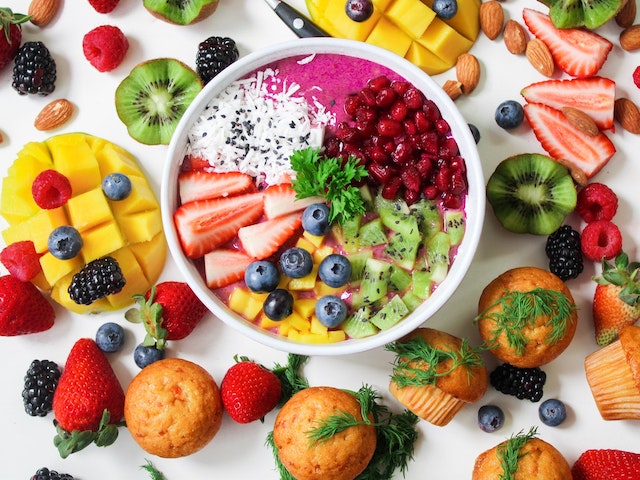Increasing Your Nutrient Absorption With Food Pairings
March is recognized as National Nutrition Month, making it a great time to evaluate the food and beverages you’re putting into your body.
Did you know that some nutrients aren’t optimally absorbed if you eat them on their own? Instead, they need to be paired with other nutrients for your body to get the most value out of them. Fortunately, that’s as simple as eating certain food combinations together.
Poor nutrition is the leading cause of illnesses in the United States, according to experts in the Federal Nutrition Research Advisory Group.
Food Combos to Try
Nutritionists recommend the following common food pairings to aid in the best nutrient absorption:
- Beans and rice – Beans and chickpeas are packed with protein and fiber, which can balance out starches like rice. When eaten together, they can help prevent blood-sugar spikes and energy crashes.
- Leafy greens and avocado – Healthy fats (e.g., avocado, olive oil and salmon) can increase the absorption of carotenoids in plants. These nutrients are essential for healthy eyes, skin and immune systems. Healthy fats are a great way to dress up salads and get essential nutrients.
- Spinach and citrus – Heme iron comes from animal proteins, and non-heme iron is found in plant foods. Vitamin C can aid in absorbing non-heme iron, protecting against inflammation and chronic diseases. For ideal absorption, pair spinach with citrus fruits or other vitamin c-loaded foods.
- Citrus and green tea – Green tea is rich in epigallocatechin gallate (EGCG), which is associated with increased metabolism and reduced inflammation. When paired with citrus, such as orange or lemon, your body can better absorb EGCG. Drinking tea alone and between meals is also recommended to maximize the amount of catechins you absorb.
- Fish and broccoli – Vitamin D and calcium are good for your bones, but they’re even stronger together. Consider plating calcium-rich broccoli with fish high in vitamin D, such as salmon or tuna.
Since your ability to absorb nutrients can decrease as you age, it’s important to talk to your doctor or a nutritionist about any personal questions or concerns.
Understanding Kidney Health
One in 3 U.S. adults are at risk for kidney disease, but most don’t even know it. Since March is National Kidney Month, it’s the perfect time to take charge of your health to lower your chances of developing kidney disease. Your kidneys filter your blood to remove waste and extra water to create urine. They also make vital hormones that produce red blood cells, promote bone health and regulate blood pressure.
The kidneys play a vital role in your body. Since they work hard for you, taking good care of them is essential. Consider the following tips:
- Get screened regularly for kidney damage or disease.
- Reduce over-the-counter drug usage, specifically ibuprofen.
- Exercise regularly to lower blood pressure and boost heart health.
- Eat a healthy diet and monitor your weight.
- Drink plenty of fluids to flush sodium and toxins from your kidneys.
Since most won’t have symptoms unless their kidneys fail, it’s crucial to know the risk factors. Check out the infographics below to learn about risk factors, and contact your doctor for more information about kidney health.
Risk Factors for Kidney Disease
High blood pressure
Heart disease
Diabetes
Being overweight
Family history
Are You Getting Enough Water
To prevent dehydration, you need to consume adequate amounts of fluid. Dehydration can increase your risk of illnesses and cause health problems, such as fatigue and muscle weakness. Men should get about 3.7 liters (15.5 cups) of fluids each day, and women need about 2.7 liters (11.5 cups). Remember that the water content of the foods you eat count as well.
You need to get enough water for your body to operate at its best. Make water your beverage of choice, and consider these simple tips to help achieve your daily water intake:
- Drink a glass of water with each meal and between each meal.
- Hydrate before, during and after exercise.
- Carry a reusable water bottle with you for easy access during the day.
- Choose sparkling water instead of alcoholic drinks or soft drinks.
Red Beans and Rice
Makes: 8 servings
Ingredients
- 2 cups red beans (dry)
- 8 cups water
- 1.5 cups onion (chopped)
- 1 cup celery (chopped)
- 4 bay leaves
- 3 Tbsp. garlic (chopped)
- 1 Tbsp. parsley
- 2 tsp. dried thyme (crushed)
- 1 tsp. salt
- 1 tsp. black pepper
- 1 cup red bell pepper (chopped)
- Hot cooked rice
Preparations
- Rinse beans thoroughly
- In a 5-quart pot, mix the beans, water, onion, celery and bay leaves. Bring to a boil and reduce heat.
- Cover and cook over low heat for about 1.5 hours or until the beans are tender. Stir and mash the beans against the side of the pan.
- Add garlic, parsley, thyme, salt, black pepper and green peppers.
- Cook uncovered over low heat until creamy, about 30 minutes.
- Remove the bay leaves. Serve over hot cooked rice.
Nutritional Information (per serving)
- Total calories: 168
- Total fat: 1 g
- Protein: 11 g
- Sodium: 315 mg
- Carbohydrates: 31 g
- Dietary fiber: 9 g
- Saturated fat: 0 g
- Total sugars: 2 g
Source: MyPlate
